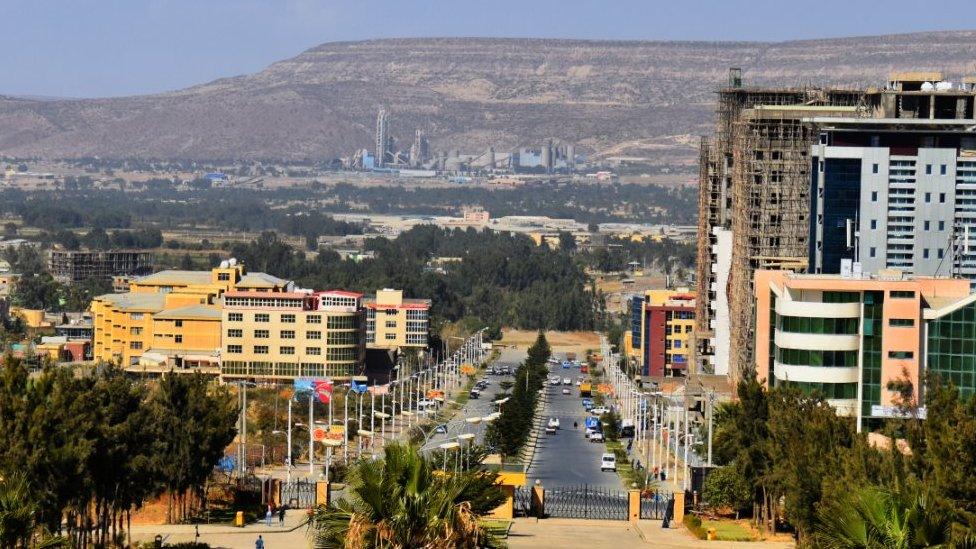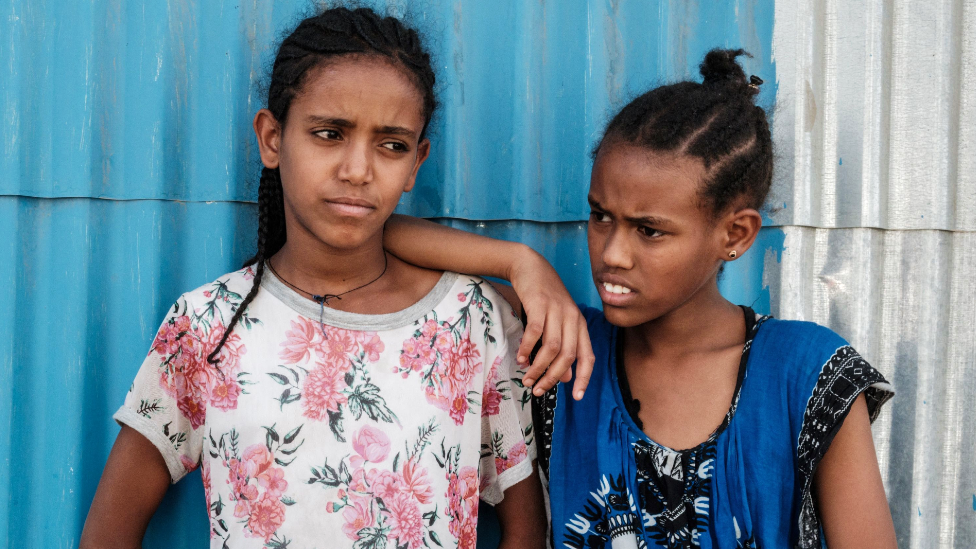Tigray: Ethiopian government admits Mekelle airstrike
- Published

People within the city of Mekelle reported airstrikes on Monday (stock image)
Ethiopia has admitted it was behind airstrikes in the capital of the conflict-riven Tigray region - hours after it denied it had carried out what rebels say were deadly raids.
The state-run news agency said the attacks had targeted rebel's communications and weapons facilities.
But media controlled by the Tigray People's Liberation Front (TPLF) said three civilians had been killed.
The rebel group is at war with Ethiopia's federal government.
The government initially denied the allegations it had struck targets in Tigray's capital, Mekelle.
"Why would the Ethiopian government attack its own city? Mekelle is an Ethiopian city," government spokesman Legesse Tulu asked.
Ethiopia's Ministry of Foreign Affairs went on to accuse the TPLF of killing at least 30 civilians in recent attacks in Amhara and Afar regional states, which both border Tigray.
"Terrorists are the ones who attack cities with innocent civilians in them, not government," Mr Legesse added.
But hours afterwards, state media said it had carried out successful strikes with the aim of preventing civilian casualties.
The TPLF still says this is not the case, accusing the government of deliberately carrying out two strikes on market day.
Meanwhile, the TPLF, which regards itself as the legitimate authority in Tigray, has not responded to the allegations its forces were behind the deaths of any civilians.
It is difficult to independently confirm details as there is a communications blackout in the region.
The Ethiopian army took control of most of the northern region of Tigray in November 2020, after TPLF forces seized a military base.
Since then, the 11-month conflict has caused a humanitarian crisis, with the United Nations warning in July that about 400,000 people were living in famine-like conditions in Tigray.
Thousands of people have been killed in the conflict, and another two million have been forced to flee their homes.
In June 2021, the rebels recaptured Tigray in a surprise attack, and then moved into parts of neighbouring regions like Amhara.
Ethiopia has declared the TPLF a terrorist organisation, but the TPLF insists that it is the legitimate government in Tigray.

Tigray - the basics
Since 1994, Ethiopia has been divided into states, now numbering 10; they are defined on ethnic grounds by the constitution and described as largely autonomous, but with central institutions
In 2018, following anti-government protests, Abiy Ahmed took over as prime minister and introduced reforms
Powerful politicians from Tigray, Ethiopia's northernmost state, accused Mr Abiy of trying to increase federal power
Relations worsened and, after the government accused Tigrayan rebels of attacking military bases, the Ethiopian army moved in in November, backed by Eritrean troops
Mr Abiy declared the conflict over in late November, but fighting has continued



- Published16 October 2021
